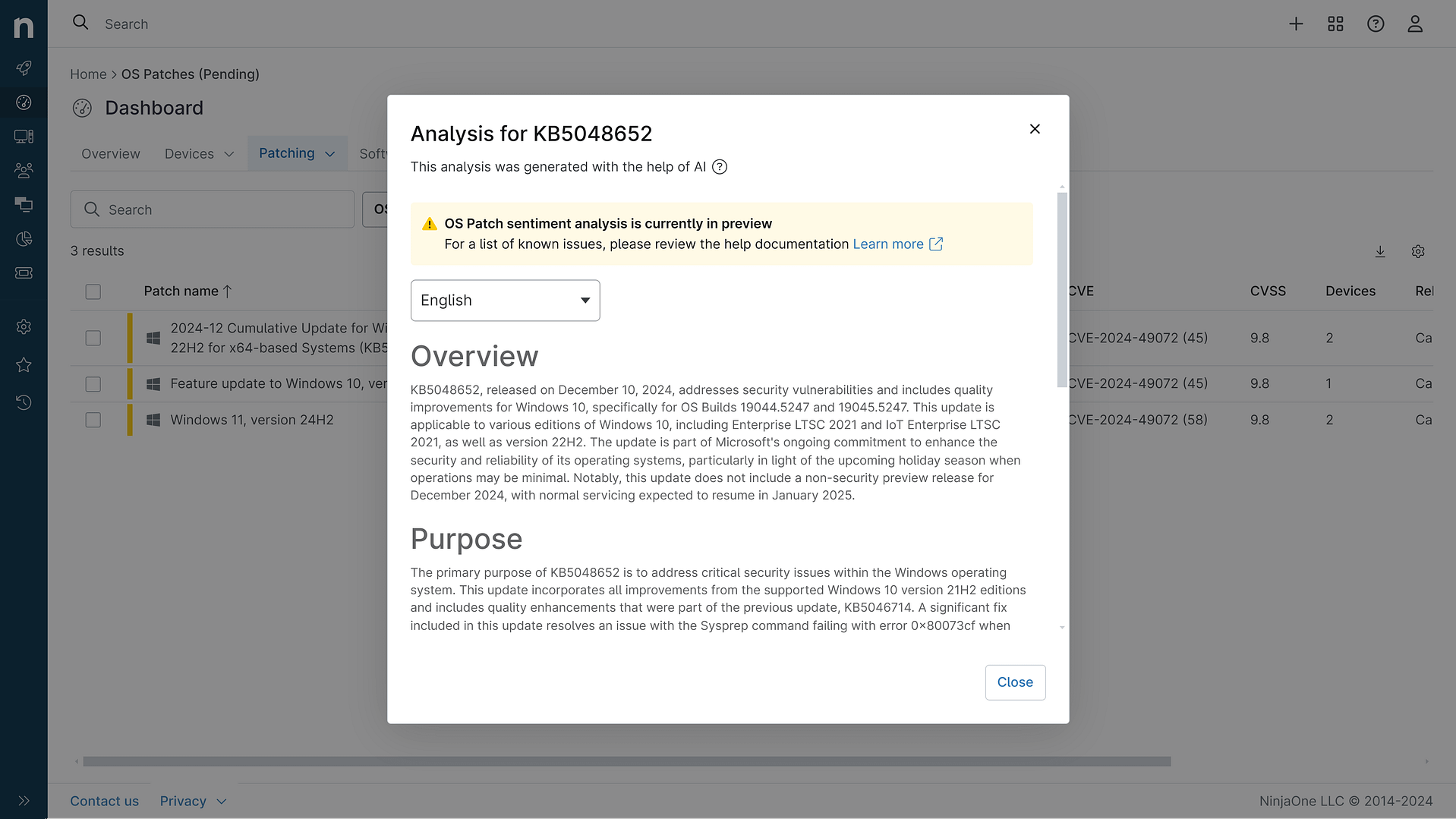KB5063877: Overview with user sentiment and feedback
Last Updated August 12, 2025
Probability of successful installation and continued operation of the machine
Overview
KB5063877 is a security update released on August 12, 2025, for Windows 10 version 1809, Windows Server 2019, Windows 10 IoT Enterprise LTSC 2019, and Windows 10 IoT Core LTSC. This update brings the OS Build to 17763.7678 and includes both security fixes and quality improvements that were part of the previous July 8, 2025 update (KB5062557).The update addresses specific issues related to input and composition, particularly fixing a known issue with the Microsoft Changjie Input Method where users were unable to select words after a recent update. For Windows Server 2019 specifically, it resolves a critical Cluster Service issue that was causing nodes to fail to rejoin clusters, virtual machines to restart repeatedly, and frequent Event ID 7031 errors in configurations using BitLocker with Cluster Shared Volumes (CSV).This update is particularly important as it comes during the final months of Windows 10 support, which is scheduled to end in October 2025. Microsoft has also included an important notice about Windows Secure Boot certificates that are set to expire starting in June 2026, recommending users take action to update certificates in advance to avoid disruption.
General Purpose
The primary purpose of KB5063877 is to address security vulnerabilities and improve system stability for Windows 10 version 1809 and Windows Server 2019. It incorporates the latest servicing stack update (KB5062800) to enhance the reliability of the update installation process itself. The update specifically resolves input method issues affecting the Microsoft Changjie Input Method, which had prevented users from selecting words after a previous update. For Windows Server environments, it fixes a critical Cluster Service problem that was causing significant disruption in cluster configurations using BitLocker with Cluster Shared Volumes. This issue had been causing nodes to fail to rejoin clusters, virtual machines to restart repeatedly, and frequent error events to be logged, affecting overall server stability and reliability.Additionally, the update serves as part of Microsoft's ongoing security maintenance as Windows 10 approaches its end of support date in October 2025. It also includes a forward-looking notice about Windows Secure Boot certificate expiration starting in June 2026, encouraging users to update certificates proactively to maintain secure boot functionality.
General Sentiment
The general sentiment around KB5063877 appears to be neutral to positive, as it addresses specific known issues without introducing new problems. The update fixes important functionality issues with the Microsoft Changjie Input Method and resolves critical cluster service problems in Windows Server 2019 environments, which should improve stability for affected users.However, the update comes during the final months of Windows 10 support, with Microsoft noting that support will end in October 2025. This timing may create some anxiety for organizations still using Windows 10, as they face pressure to migrate to Windows 11 or deal with the security implications of running an unsupported operating system.The notice about Windows Secure Boot certificates expiring in June 2026 could also generate concern, particularly for enterprise environments that need to plan certificate updates across large numbers of devices. While Microsoft is providing advance notice and guidance, this represents another maintenance task that IT departments will need to address.
Known Issues
- Microsoft states they are currently not aware of any issues with this update. The update documentation mentions a previous known issue with the Microsoft Changjie Input Method that has been fixed in this update. For Windows Server 2019, a previously known issue with Cluster Service repeatedly stopping and restarting has been fixed in this update.
Disclaimer: We take measures to ensure that AI-generated content is of the highest possible quality, but we cannot guarantee its accuracy and recommend that users do their own independent research. Generated on 2025-08-12 07:13 PM
